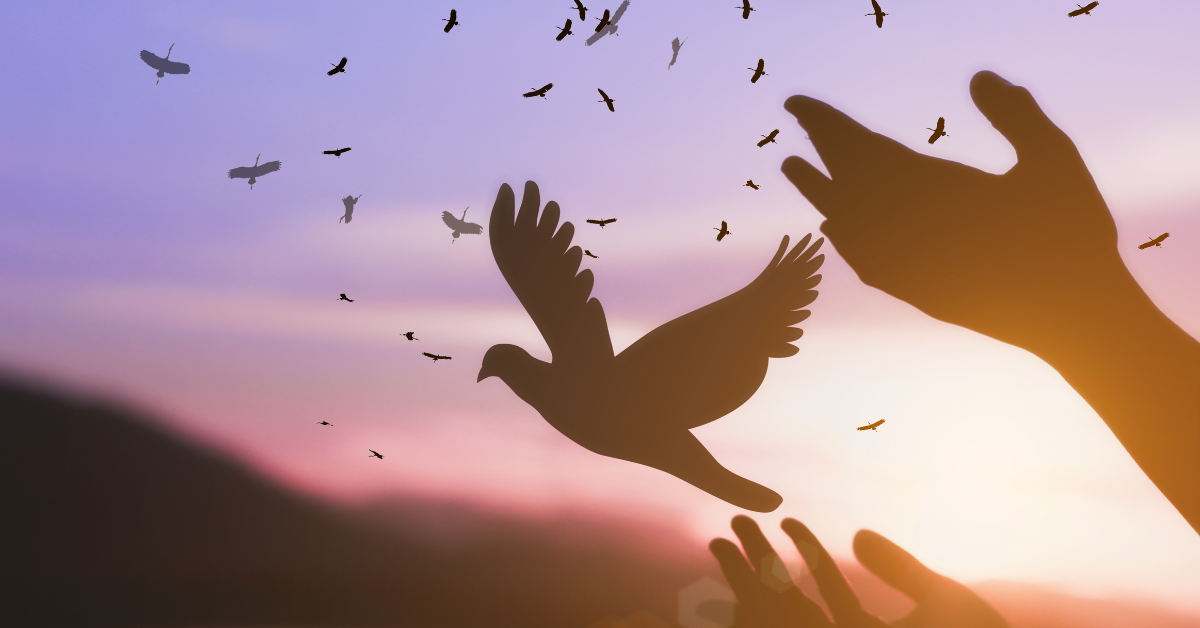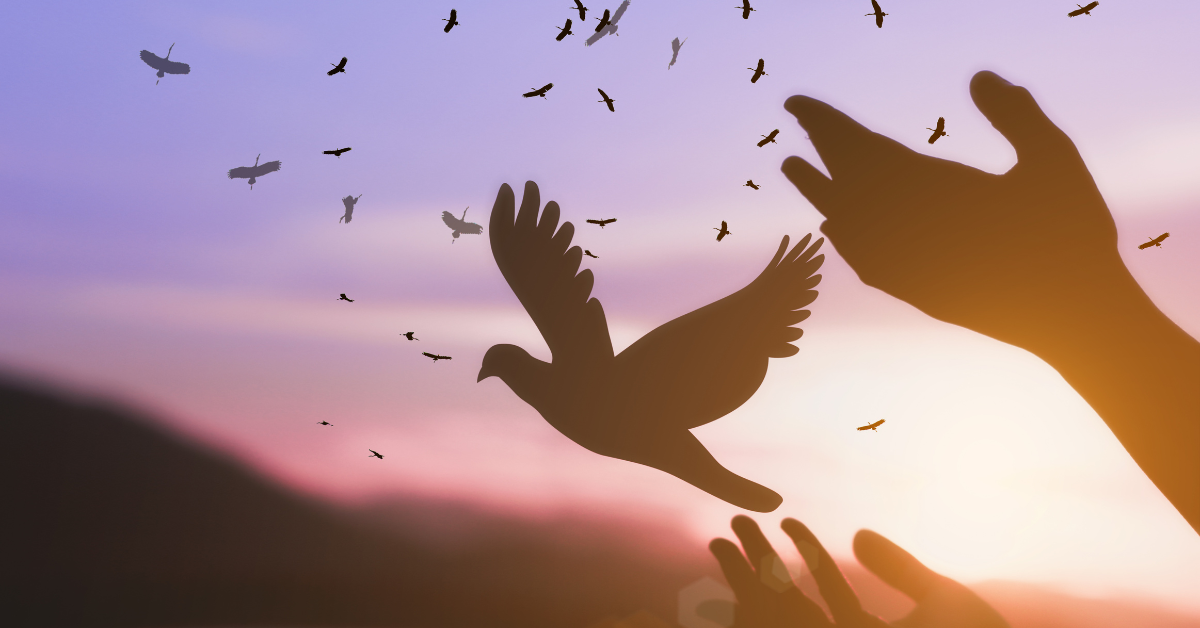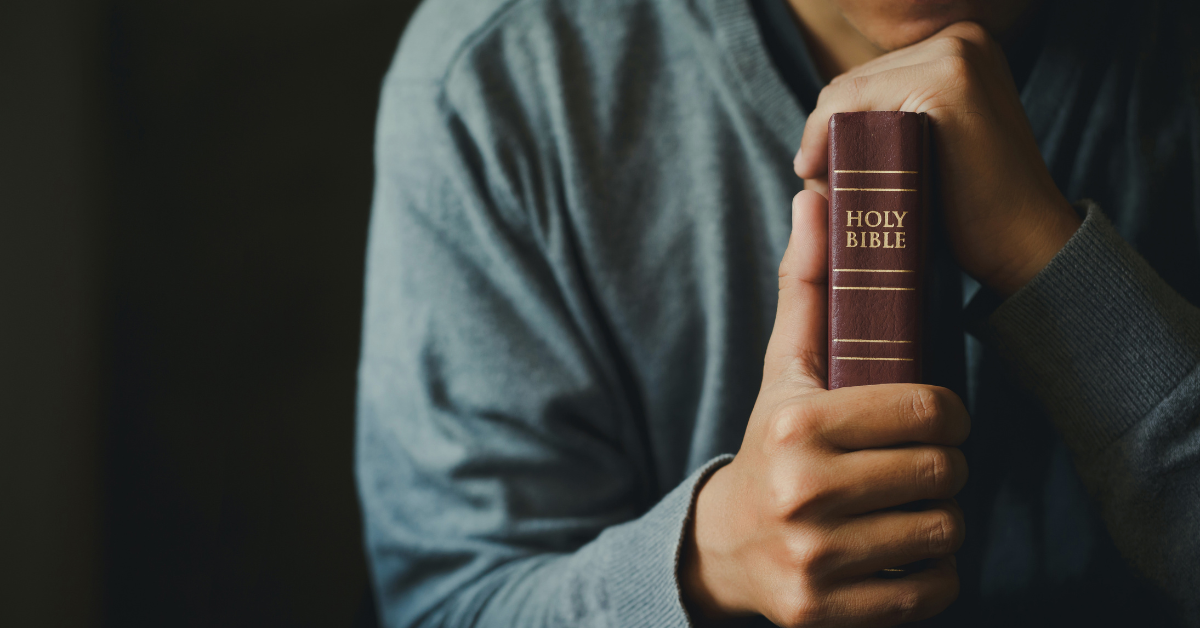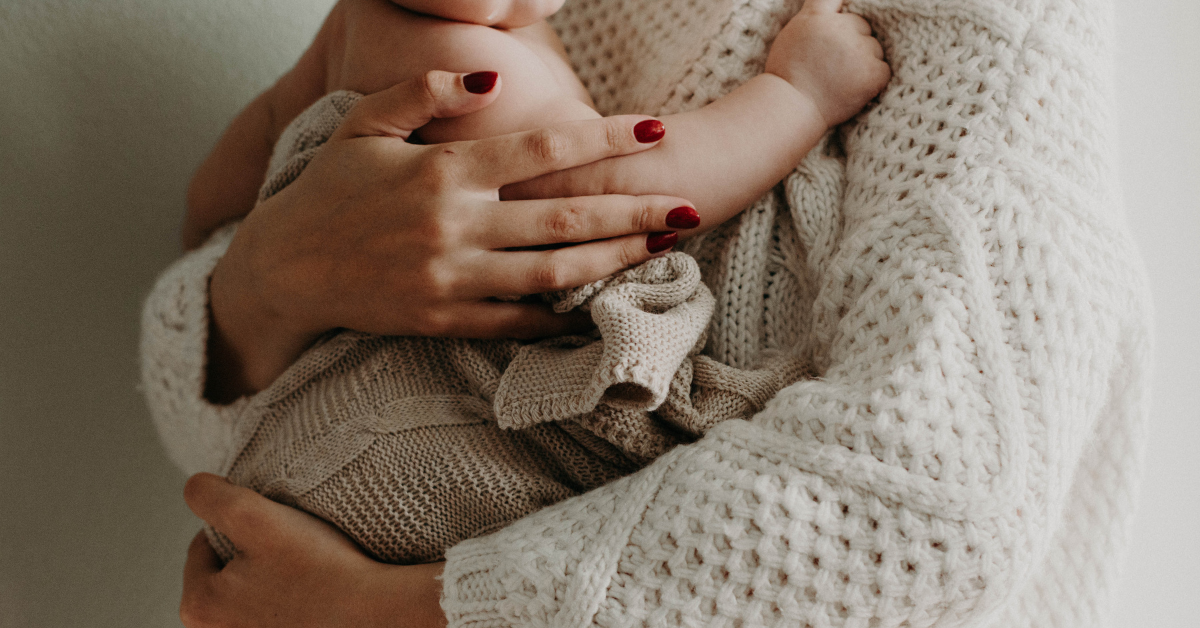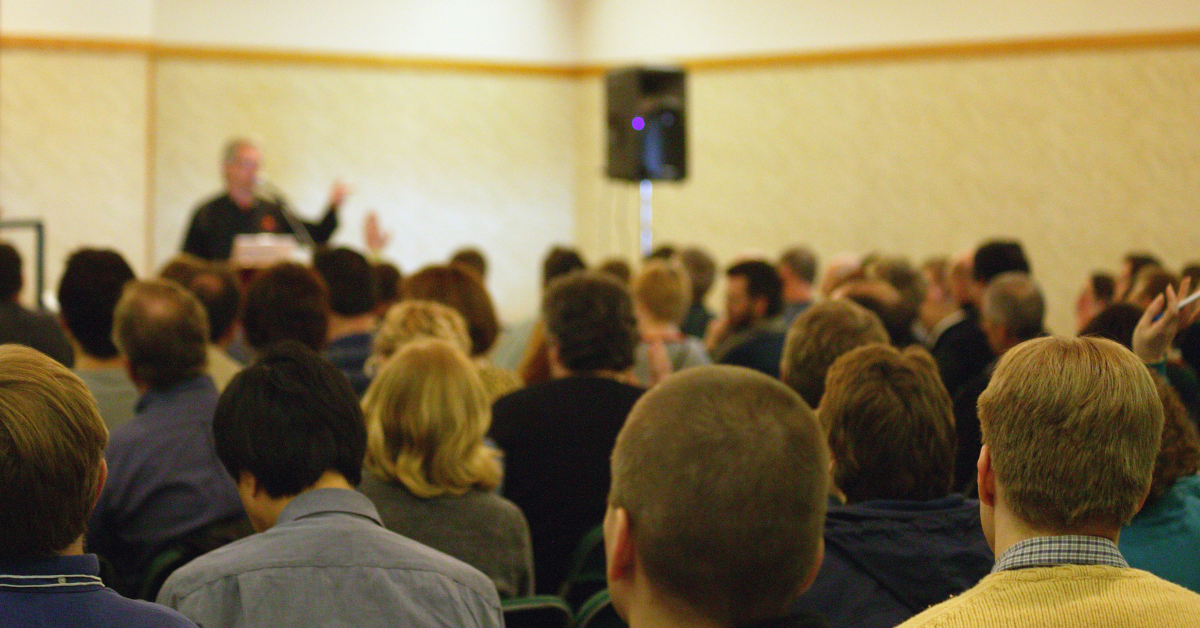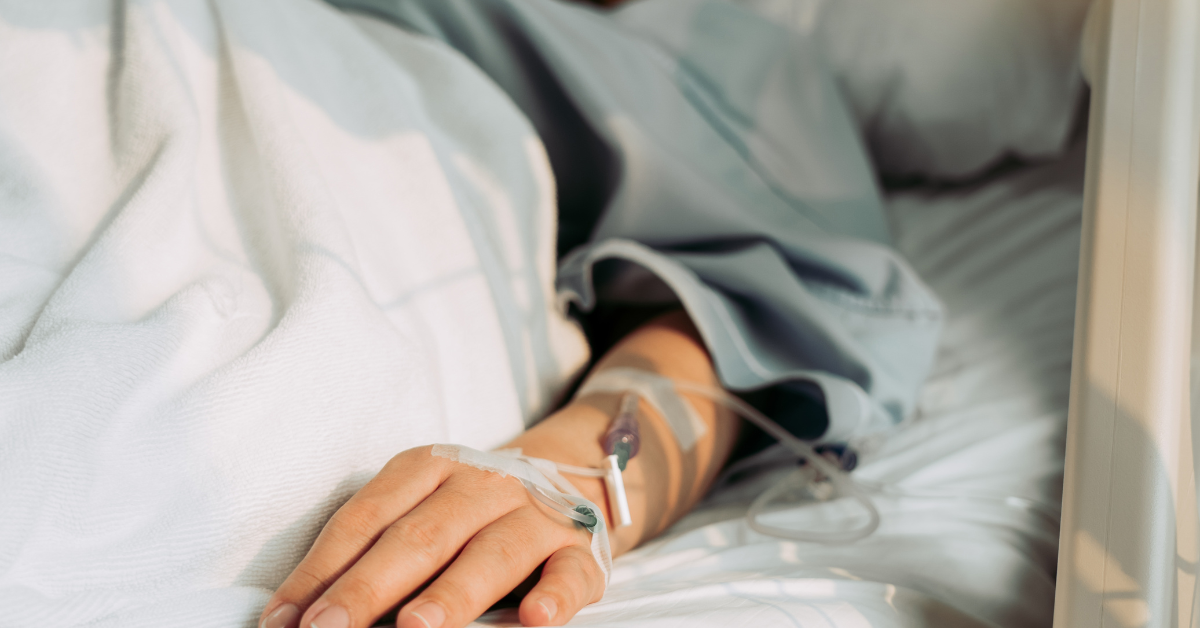99. My Grief and Loss Journey
On today’s episode, I want to take a moment to open up and share my personal journey of grief and loss over the past year. It’s been a challenging road, but I find purpose in sharing my story with all of you, knowing that it might help someone going through similar challenges.
Episode Highlights:
- The profound impact of losing both parents and navigating the complex emotions that arise from such a significant loss.
- The importance of allowing yourself to grieve and acknowledging the unique challenges that come with losing both parents.
- Honoring your loved ones’ memories and finding ways to keep their legacy alive in your own life.
- The transformative power of surrendering to God’s plan and finding peace amidst adversity.
Episode Summary:
Welcome to Christian Faith and OCD, episode 99. I’m Carrie Bock, and today I’m sharing a very personal story that’s been unfolding over the past year—a journey through grief and loss. As hard as it’s been, I believe there’s value in sharing these moments because grief touches us all in different ways.
My journey through grief began in March 2022 with the birth of our daughter, Faith. Just a few weeks after, my mom came to visit, and we discovered that she was battling pancreatic cancer. At first, we thought it might be pancreatitis, but the diagnosis quickly turned to something more serious. We were hopeful she could undergo surgery, but unfortunately, the cancer had already spread too fast. It was an overwhelming and crushing realization, coming at a time when I was still recovering from childbirth, processing the emotional and physical toll of bringing new life into the world while confronting the reality of losing someone so dear to me.
As I reflect on this past year, I’ve come to see how deeply intertwined joy and sorrow can be. While there have been moments of profound pain, there have also been moments of grace. God has met me in unexpected ways, showing me that even in the midst of heartache, there’s room for healing and growth. I know many of you are walking through your own journeys of grief, and my prayer is that through today’s episode, you’ll find comfort in knowing that you’re not alone and that God’s presence can sustain us through even the toughest of times.
More Episodes to Listen to:
Transcript
Welcome to Christian Faith and OCOD, episode 99. I am your host, Carrie Bock. If you’ve been following along with our podcast, then you know that I’ve experienced some pretty significant grief and loss over the last year. And even though it’s a hard thing for me to talk about, I wanted to share because I feel like since having this podcast, I’ve been through a lot and every time I go through something and learn something new, I definitely want to put that out in the world and share it with you.
I don’t want to just suffer in vain. If this can help someone else who is going through grief and loss, I really want to share that with them. All of us are going to experience grief and loss at some point or another. It’s just a part of our lives now. And it doesn’t matter how young you are, how old you are, how rich or poor, whether you live in America or in Australia.
At some point, you’re going to go through grief and loss. Whether that’s the loss of a person that’s close to you, the loss of a job, divorce, a move that was stressful, involves loss of relationships, there’s definitely something that we can all learn from each other as part of this process in the joint collective human experience.
I wanted to start by going over, just the bird’s eye view of what’s happened since Faith was born, our daughter. In March, 2022, Faith was born and my mom flew up a few weeks after my in-laws were here right after she was born. And mom was having some problems with her stomach. She was saying, “You know, I’m not eating certain things.”
She had been treated for pancreatitis. The doctors didn’t have answers as to why she was continuing to struggle with her stomach issues. Just a couple of months later, Memorial Day in May, Mom got diagnosed with pancreatic cancer. She had to wait to have all these scans and different things. I guess several doctors had to be involved in the ultrasound process to look at the mass on our pancreas, and Steve and I had gone away at that point for the weekend.
We just wanted a little mini vacation before I got back to work. I had been on maternity leave for 12 weeks. Things were just a little bit different in our life. We had support system that felt a little bit shaky, somewhat isolated from staying home with the baby for the first few months, but then also we were trying to get connected with another church.
We ended up making a difficult decision towards the end of 21 to leave the church that we had been going to, and so we were in the process of trying to get in a small group or some type of Sunday school or ministry at the new church in mid-July of 22. On my birthday, we flew down to see my mom.
At this point, I knew things weren’t great with my mom. They had told her that she could have surgery to have the cancer removed and only about 25% of people with pancreatic cancer can actually go through the surgery. I think it has to do with a certain blood vessel in that area, and once that gets wrapped around surgery is too dangerous.
We had this surgery that my mom was supposed to be able to have or that we were hopeful that she would be able to have and then have a longer life. It turns out that the cancer spread too quickly, and so she had to go back into the hospital. They were not able to do the original surgery to remove the cancer, but of course, she was having other problems and they were trying to work with different tubes to get things straightened out so that she could function.
I remember telling my mom that I didn’t want to wait until she was on her deathbed to come out and see her and let her know how much I loved her, Steve Faith, and I ended up getting a one-way flight to Florida and we stayed down there for three weeks while I was working online, trying to rebuild a practice after coming back for maternity leave.
In a summer, in which no one wanted to be online because everyone had Zoom fatigue from COVID, they would have rather run off and gone on vacations understandable than see a therapist. That was tough. I really just made sure that everyone else was taken care of except for me. I would go visit Mom in the hospital. I would pick up dinner for Dad or make dinner. Sometimes I was seeing clients. I was making sure that my husband and my daughter were okay. During that visit, we kept hoping that my mom was going to be able to get out of the hospital where she would be able to spend more time with my daughter. And unfortunately, mom was only out of the hospital for a couple of days and then things happened with her feeding tube.
She had to go right back in. It was unfortunate that we didn’t get more. Time with her outside of the hospital, but we decided to celebrate all the summer birthdays in our family, which is myself, my brother and my dad all have birthdays in the summer. And then towards the beginning of September after we had gotten back, my husband was having a little bit of some mild balance issues, more when it was dark or couldn’t see very well, or the lighting was bad, but most of the time he was getting around pretty well. When last year, in July and towards the beginning of September, the day Faith turned six months old, Steve had an appointment with the specialty neurologist. He was diagnosed with SCA or Spino Cerebellar Ataxia and that was like a big hit as we are dealing with my mom dying and a few weeks later my mom dies on the evening of September 22nd.
My mom really suffered a lot with this cancer and that was so hard to see my mom go through that. She was always just a very devoted person to the Lord, to church ministry, and I really had a lot of spiritual wrestlings about moms suffering towards the end of her life. It just changed the way I have viewed a lot of things, which I’ll talk about a little bit later.
Losing Mom was really such a big hole because she was a person that I would talk to about everything. She was a go-to person. I talked to her every week and let her know kind of what was going on with my business efforts that I was trying to do.
She was my biggest fan for the podcast. Absolutely, just an incredible woman of God. I know that she struggled in her own faith journey towards the end just wondering, do I have enough faith for God to heal me? And of course we were praying so hard during this whole process of my mom being sick and having cancer and okay, praise God, she can have surgery. Like, “Oh no, she can’t.” Now what does this mean for our family? It was tough. It was really tough going through all that, but knowing also that because my mom had a relationship with the Lord that when she died, she would go to heaven and it was a hard piece kind of, there was a little bit of role-switching in a lot of ways towards the end with my mom because I felt like I had to be strong for her as she was going through everything and.
I’m dealing at the same time with this new diagnosis for Steve and I don’t really have the support of anyone to process that with or talk to them about it. And in this process, Steve, his balance was really declining and started using a cane. Got him in October, I think, into a vestibular therapy. It was just a tough time.
And in October, it was about a month after my mom died that we had her memorial. That timing was hard waiting a month because it felt like I was trying to work through things. But then also there was this lack of closure because we knew we had to go back to Florida and deal with the funeral and everything else and eally the silver lining of the whole situation was being able to have Faith there to spend so much time with my extended family and with my dad while she was in her first year of life. Obviously, we didn’t plan to go back and forth to Florida that many times in her first year, but it was just a good time with my immediate family. But my dad’s extended family, most of them are in Florida as well, and both my parents came from pretty big families.
It is nice to have the support of aunts and uncles and others. Since we had already planned to come down for Thanksgiving and I think had already booked flights or made arrangements to come down, we went ahead and came down for Thanksgiving. That was ended up being about a month later, and I didn’t know that at the time. That would be the last time that I’d seen my dad in person. He was struggling, of course, as we all were with like the first holiday without mom, and he told me that he. I was gonna really miss this cake that she used to make.
It’s a family recipe that we always make around Thanksgiving and Christmas. It’s horrible for you. It’s mostly Crisco and eggs and flour. But anyway, we made this cake. I told Dad I would make the cake for him, and I’m not lying. That is a hard cake to make and not get dry. It was like the best one I’ve made probably ever, which was just really cool, so everyone appreciated it, and of course, it was all eaten. I didn’t last on the dessert table very long, but that was a good time and just a good memories with my family.
We spent Christmas with Steve’s family and it was super cold in Tennessee and March. We had Faith’s first birthday. My dad had been telling me, “Okay, when Faith turns one, I want an updated picture of her, like an eight by 10.” I was like, “Okay, well you’re gonna have to tell me like which picture you want of her?” And he said, “Well, no, she has to turn one first.” So I was like, “Okay, dad.” And we ended up having a video call with my dad, aunt, brothers, and nephews, and my dad got to see Faith walk on the video call, and then Dad died.
A week later, after Faith’s birthday, we were back down in Florida about a week later for the funeral. We decided not to have so much time in between and where it was gonna be close to Easter. So we didn’t want to interfere with Easter plans and those things. My dad wasn’t in the best of health, whereas my mom had been in really good health, so when she got cancer, it was a huge shock because she’d always taken such good care of herself, was into vitamins and eating vegetables, all those things. She didn’t drink soda. She didn’t drink a lot of coffee. She just lived a pretty healthy lifestyle. She was walking on a regular basis. When mom got sick and died before dad, it was a shock for all of us as a family because dad hadn’t been in the best health for years, and my dad had a stroke several years ago and he’s had trouble with his blood pressure and weight.
He had been overweight for probably the majority of his adult life. I had always thought for the last few years when I would visit my dad or he would come to Tennessee, I would have thoughts like, what if this is the last time I see my dad? And wanted to let him know obviously that I loved him and he was one of these people that he never thought about, like his own mortality.
He was just kind of, I think, expected to live forever. He wasn’t, didn’t seem to be really worried about those things, but when Dad died, even though I knew he wasn’t in good health, I didn’t really understand the weight that I would feel over no longer having parents at all. It just felt like I was in this child orphan situation.
I kept saying I feel lost and used the word weird more than once to describe the feeling. There’s just no other feeling like that when you lose both of your parents, especially in such a short time period. My head was super, super cloudy. Right after that, I had to write everything down for my reminders. I know I wasn’t functioning at max capacity.
I wanted to tell you a few of the things that I did during my grief process that I felt were helpful for me. One was I showed up in my relationship with God even if I didn’t have the words, or I couldn’t even think to pray. And I can’t explain to you what happens in those moments spiritually, but I know that the Bible says that the Holy Spirit intercedes for us. And that brought me a sense of comfort because I really didn’t know what to say and couldn’t think straight.
When mom got sick, I made the decision to go back on antidepressants because I knew that I had to function and when I was crying for like an hour straight, it just wasn’t functional at all. And I just made that decision that I was gonna be on them at least the first year after mom died to get through all the first pieces, first holidays and things like that. I made the decision to go to bed at the same time every night. You wouldn’t think that’s like a major life change, but it really has changed my life. Steve jokes with me about it. He is like, “Hey, it’s five minutes till your bedtime.” I used to be one of those people who were like, one more thing before I went to bed, and It didn’t work out for me well because it was usually my one more thing somehow engaged my mind and required some mental activities. So it was a little too stimulating before I needed to go to sleep. So now my nighttime routine is much more mellow and I found that by going to bed around the same time every night or by a certain time, has helped me to get more restful sleep and helped me to feel better and more refreshed in the morning.
I haven’t had problems falling asleep since I started doing that. And as many of you know, from a prior episode, I cut back where I could on work to take care of myself and reduce mental energy. It meant saying no to some clients that wanted to work through grief and loss issues. It meant saying no to all clients for a short time period.
I struggled with this because I had some type of imaginary deadline for this course that I wanted to put out for Christians with OCD, and I just emailed everyone on the list and put the whole thing on hold. If you’re not a part of our email list, you can join by going to hopeforeanxietyandocd/free, if you want the OCD resource. It was tough to have to slow down because I enjoy living at a little bit faster pace and I’m naturally like a goal setter and I have things that I want to accomplish and things that I look forward to around the corner. But, That wasn’t where I was at at the time.
I had a severe lack of motivation. I would tell my counselor, I would tell other people I get out of bed right now because I have to because I have a daughter and a husband who need me and need my help. Other than that, if it wasn’t for them, I probably would have spent a lot more time in the bed just moping around and being sad and a lot less functional, but because I essentially had to put one foot in front of the other and do the basics, I just really focused on the basics of making sure that we were eating, sleeping, and the house was relatively clean, somewhat.
I learned in this grief process to engage and enlist my support system, and it’s so humbling to ask for help, and I realized I wasn’t gonna make it through without the support of others. I asked for more help on our last trip to Florida than I had on any of the others. If you want to help someone going through grief and loss, what can you do?
Make them food or bring them food because the last thing you want to spend mental energy on at that moment is what is for dinner. It’s almost like your brain is just constantly trying to multitask, working through the grief and loss process. It’s very taxing mentally, physically, emotionally.
You can mow someone’s lawn, you can watch their kid, and there are so many different little things that you can do. One of the sweetest things that someone did for us was give us a few groceries when we got back from Dad’s funeral since we’d been gone for a couple weeks and I was helping clean out my parents’ house at that point too. I didn’t have the perishable food, the basics, bread, milk, eggs. They bought us just a few things and it was simple, yet incredibly thoughtful. So just know that even if you can’t relate to what someone’s going through, or you’re not sure how to respond, those little acts of kindness and love will really stick out to them.
There’s been so much that happened in the last 15 months as I wrote all this down. I was just overwhelmed, That was a lot to go through, and I’ve learned a lot, not just about some healthy things I could do for myself, but some things about grief. Some I knew from the experience of going through my divorce, but to be honest, I had forgotten how tough the grief process is.
Grief is exhausting. It takes time. There are no shortcuts. I went back and started reading the book, “Life After Loss” again, that I had read after my divorce. The author talks about how you can’t get over grief, you have to go through it. I highly recommend that book. It’s about losses of many different kinds. He talks about death, divorce, moving to a new city, starting over. I learned that in terms of family members, other people may be at a different phase of grief process than you are, and that can be really challenging. My dad never really accepted that my mom was dying, even up to the very end saying that he was shocked when she did die, and that she’d been very sick for some time. But I think that he was still holding onto a lot of hope that they would be able to do chemo and get rid of the cancer, and Mom just was never strong enough to do chemo. Her body just wasn’t in a place where it could handle that due to all the drains and different things she had going on. You may be in a stage of grief where you’re angry about the grief and loss and someone else is really sad.
You may be in a place of sadness and somebody else is in anger and it’s. Sometimes it’s hard to meet your other family members on that level. That definitely was something that came up for me. I had a lot of anger about my mom’s care, or somewhat lack of care that she experienced while she was in the hospital by her doctors.
I felt like they weren’t really honest with her about outcomes. You know, just were insensitive. There were some things that were said that were pretty insensitive, and I became very angry and frustrated in that process. I really just tried to advocate for her wherever I could. When I would go there, I was reminded that grief is hard when you know it’s coming, and it’s hard when you don’t.
One isn’t better than the other. They’re just different. With Mom, we knew she was dying. We got to have a lot of goodbye conversations. Just a lot of time spent in the hospital talking about her as a mom and even my parents were able to have conversations about, you know, being a spouse and all of that.
With Dad, we didn’t get to say goodbye. It was just suddenly he died of a heart attack in his sleep, basically. I’m glad that he didn’t suffer, even though we didn’t get those opportunities necessarily in the same way that we got them with Mom, when you have the sudden grief and loss, it’s shocking. It jolts you in a way and when you know it’s coming, you still don’t know when it’s coming, so you’re anticipating something.
I remember even telling some people, I didn’t tell them the whole story, but I was trying to kind of make plans and letting people know, “Hey, I may have to travel at a moment’s notice and I may not be able to fulfill that responsibility just without trying to tell them the whole story of what was going on with my mom. So definitely grief is hard either way. I realize that you could have a lot of different conflicting emotions and grief that mess you up like I was talking about before. One moment you might be intensely sad, and then another moment you might be super angry.
Another moment you might have some regret. I think that regret is probably the hardest emotion to have. I really try mostly to live my life without any regrets. I think that’s why I wanted to come down and see my mom when I did, and Steve was definitely a strong supporter and proponent of that. He was like, “Just do what you have to do to be with your family.”
Even though it was hard, I know on him and Faith just change of schedule and routine and location, that I’m glad that I did that in that situation and I’m glad that I saw my dad, you know, at Thanksgiving. I’m glad that we had that time to spend together and I’m thankful for that. In my own ways, I always tried to communicate to him how much I loved him and valued him as a parent. I had a much probably closer relationship with my mom than I did with my dad, even though I know he still loved me in his own way, but I just had different feelings about the situations and the deaths.
Definitely, there’s a lot of spiritual questioning that can come in these situations. Why did my mom have to suffer this way?Why did on the way out of her life, especially when she served God and served the church, you know, why didn’t God answer our prayers? For healing in the way that we wanted to so that we could still have Mom here with us. I don’t know. I don’t have full answers for those things. I know that God gave me peace about my mom’s suffering because my mom was very open about her faith to people in the hospital, and she was open about, She loved telling them that she had a granddaughter who was actually born on my mom’s birthday, believe it or not.
We did not plan it that way. That’s just the way it happened. But she was supposed to be born several weeks later. My mom was very open with people about her faith and she would give out these little Billy Graham tracks. I don’t know if you’ve ever seen those. I’m surprised there are still tracks out there really, to be honest, and people still use that.
If it works and it brings someone to Christ, that’s great, but she would hand out these little steps to peace with God. Billy Graham tracks. I know that there was one time I was in the hospital sitting with her and one of the nurses came in and she said, “Oh, I took that booklet that you gave me and I showed it to some of the other nurses.” I told God, during this process of prayer, I really hope someone in that hospital got saved up in there and I probably will never know this side of heaven if what the impact of my mom being there was. God gave me the piece, that was her last mission field on this earth was just sharing the love of Christ with people on her way out, and that’s just how she was.
My mom went to school actually to be a missionary. She never left the country. That’s a long story, but she spent most of her time in her career as an ophthalmic assistant working for an eye clinic.
I learned no one wants to have the hard conversation about death, not even the doctors. Whereas I think I’ve heard other experiences where doctors were quick to predict how long a family member had. They definitely weren’t in my mom’s situation. In some ways, that was good. But in other ways, it was really to the detriment. I think when she got down to the final weeks and days left, we were able to get her home with hospice for a few days to spend those time with my dad, but then she actually went back to the hospital and passed away there. I think for some reason she didn’t want to pass away at home. I don’t know if that had to do with, she was concerned about how it will affect my dad, but I’m glad that she had some time at home before she passed away.
It’s tough because I don’t think my mom fully faced her own mortality until palliative care came in and started talking with her about if she wanted to sign, do not resuscitate or what she wanted her final wishes to be for her living will. She ended up being very upset by that conversation, and I fault the doctors for that because I don’t think they prepped her for how little time that she had left and how her body was essentially shutting down at that point. This, especially with Steve’s diagnosis and all the uncertainty, it’s prompted us to have a lot of conversations about death, living will, final wishes, and those conversations are so important to have. I can guarantee you that your loved one does not want to sit there and think about what song you might like at your funeral, because when you’re going through grief, just thinking about something like that, it sounds so simple, but yet it’s so hard in that moment to know like, I don’t know.
Well, would they have wanted this song or am I just picking that because it sounds good or It’s easy? I would say that’s one good thing that has come out of the situation for Steve and I to have honest conversations about, do you want to be kept alive by a breathing machine? Do you want to have a feeding tube? What do you want? If things get really bad or you’re in a coma and nobody thinks you’re gonna wake up, those are. Hard conversations to have, and we also had a lawyer that really walked us through the entire process of getting a will and making sure that our daughter was taken care of in that process.
If something should happen to us before she’s 18 and how she will be taken care of, who will take care of her? We both have living wills now and some paperwork if we need to get medical records from each other. It’s just really good. I feel a lot more at peace having that prepared now, and hopefully we won’t need our wills for quite some time, but you just never know.
It’s important that we have these conversations about death. My counselor told me about a book, and I don’t exactly remember what it was called, but it’s a book where you can fill out even what you would like to have happen to your pets and what type of funeral or burial would you like to have? Those types of things. Are you wanting to donate your organs or your body in some way to help others? I would encourage you to have some of these hard conversations, especially if you have older relatives in your family. Ask them, “Hey, do you have a living will or have you thought about what you might like or not like? Do you have any plans that you would like for your funeral?” Of course, nobody wants to talk about when they’re gonna die, but these conversations are just so vital for our families because it really, not having to plan all that stuff or not having to make the decision for you because you’ve already made the decision on paper, that is just a great gift that you can give your family.
I learned that grief is best shared. One of the most powerful things I did as part of my grief and loss process was going to an all-day grief intensive, which sounds bad, I guess, to some people, but it was nice. It was at the Refuge Center for Counseling in Franklin, and I spent all day with a small group of people really to process various griefs and losses that we were going through. And even though everyone’s story was different, it’s like we understood each other on a certain level of shared experience, and that was such a gift. We were able to go through several different experiential activities. We did art projects and other things. We were able to process information in different ways, and it really got me thinking about how those experiential in the moment, Therapy exercises can be so helpful and wanting to do more of those with my clients.
I think my biggest takeaway was that I got to be the client again, and nobody knew that I was a therapist, which was so beautiful. With the grief intensive brought out that I’m not sure that I would’ve gotten there in just an individual setting or just by talking about it if we weren’t doing these different activities. Was that because Steve got his SCA diagnosis? Just a short time before my mom died was that I never had an opportunity to grieve that. I never had the opportunity to grieve the change of my life, the big change of becoming a mom because I became a mom and then my mom got sick, so there was no sense of me like adjustment period to becoming a new mom.
There’s grief and lost with that because you rarely leave your house after seven o’clock. There are so many things that revolve around nap times. Whether or not your child got enough sleep the night before, if they’re teething, how they’re feeling. It just really kind of restricts your activities quite a bit, and I don’t think I had ever taken the time to even process through that.
Who am I now that I’m a mom? There was that piece that came out, but also, this piece of who am I now, that I’m also caring for someone who’s disabled and even though my husband is at a place where he can do a lot of things for himself, things are changing and there are some things that I have to be more responsible for we’re definitely remind him of.
The thing about grief and loss is that you end up with a new identity in the end because there’s this missing space in your life of someone who used to be there who used to be such a big impact on you. I felt that when I went through my divorce process, and I also felt that after my parents passed away, I really needed to feel the depth of that related to the life that I thought Steve and I were gonna have in the life that we have now.
It’s still a great and amazing life, and I can say that in a place of acceptance, but I needed to really be sad and frustrated about what it’s like to have, of course, a very rare diagnosis that most people don’t get. I can’t say, “Hey, my husband has Parkinson’s, or my husband has MS.” People know what those things are. I have to say my husband has SCA, or my husband has ataxia and hear people say, “What does that mean?” And then you have to go into this explanation of what it means, and it just can be pretty frustrating. Of course, everyone wants to be helpful and a lot of times doesn’t know what to say or how to act or how to be helpful.
There were a lot of different things that I was able to process that. I realized there was some completion around, or acceptance around the grief and loss of my parents because there was some pre-grieving that happened before they actually died, but also because there was some finality to it and I knew, okay, they’re in heaven, they’re okay. Whereas with my husband and my daughter even too, it’s like sitting on the edge of uncertainty. What is next month going to be like? What is next year going to be like? Even the doctors can’t tell you that no one knows, only God knows. We really have to sit in a place of trust with Him and just say, “Okay, you got this.”
We’re just so thankful of how well Steve is doing all things considered, and he’s come just such a long way in therapy. He was able to graduate through that and has been walking well. So far, so we’re just, every day we’re thankful. Having faith really keeps them active, which is good as well, cuz that’s an important part of this particular diagnosis is just staying active.
If you’re grieving right now, what I want you to know is that there is hope on the other side. That if you take the time to process this, to talk about your loved one, whether that’s in individual therapy or group therapy or some type of art therapy process, that you can come to a greater place of peace about losing your loved one, even if it was a challenging relationship or even if it was a traumatic loss for you.
The main thing is that you have to stay the course and stay with the process. You can’t just shove it down or try to ignore it, or pretend like something didn’t happen. Really being able to acknowledge this hurts me, or I’m angry about this, or I’m confused. I don’t understand. That expression is so important and vital to your grief process.
If you can find a support group or other people that are going through it as well, I think that’s an incredible opportunity too. One of the reasons I chose to do the intensive was because I just couldn’t seem to get it together to fit a support group in my schedule. And I didn’t want to go in the evening somewhere after I hadn’t seen my daughter and had been working all day.
That just didn’t quite seem right and some, I couldn’t quite fit the Zoom group in. Then my schedule, I was just having problems making space for this. So when I saw the intensive option, I thought, okay, this is good. I do some intensive work with my clients and it’ll be good for me to see what that’s like.
On the other side, I will say that the next day, I don’t know if this was related to the intensive or not, I had the worst headache that I had had in a really long time, so I don’t know if that was just from all the mental and emotional processing that I had done the day before. That piece was a little rough, but I definitely left feeling a lot lighter.
It’s great to be in an environment where people are just holding emotional space for you. And that’s a lot of like what we do in therapy, and my friend and I talk about this, who’s also a therapist, is that a lot of times we don’t know how to sit in that space with people to just say like, “I’m here. I’m here if you want to talk. I’m here if you want to be silent.” I think most importantly, “I have no advice for you because there’s really no good advice that you can give in that moment” or to say like, “I know how you feel” because you really don’t know how that person feels even if you’ve been through a loss. Their loss was different than yours in so many ways. That was one of the best parts about the grief intensive was being told, “Hey, here’s one of the rules.” You can’t give advice or just make platitudes.
Another rule was that we had to own our own grief process instead of making general comments. Grief or saying, well, when you go through grief, but we had to say like, when I’m grieving or my experience with my grief process is, and that was really good too for us to be able to take ownership over the process.
You aren’t in control of all the feelings that come up. You aren’t in control of the actual grief situation, but you can be, take ownership for the process of healing, and that piece is hard. Hard, but a good process and a good journey to be on.
My story of hope right now is that even though my daughter’s going grow up in, she’s not going to remember grandma and grandpa as far as my side of the family goes, but know that I want her to know them, so I know that I will keep talking with her about them, and I will keep expressing to her, how excited they were to have her as a granddaughter and how loving and supportive they were towards her.
Thank you everyone for listening and really just being a part of this process on the journey with me. I think God knows exactly what we need at the time that we need it, and to be just completely frank with you, I think if I didn’t have this conference coming up, Where I was going to promote the podcast to a bunch of counselors and hadn’t already paid that money to do so. I may have just thrown in the towel on the whole thing.
I don’t want to do that unless it’s something that God tells me that, “Hey, we’re done and you need to stop doing this.” But that was so tough for me to keep going. And what I really thought about was all the people who said, this podcast has helped me in some way, shape, or form, or, it’s helped me understand my loved one better.
So many people have written and said, “Hey, I knew I had anxiety, but I didn’t know I had OCD until I started listening to your podcast. That’s such a beautiful story and journey because then now they can get proper help and proper treatment and know how to deal with it. Their situation is different than they did before.
It’s such a beautiful thing just being able to share these things with you guys each and every week and spread that there is hope for anxiety. There’s hope for OCD. Of course, our ultimate hope is in Jesus Christ. So know that even though we may have never met, you are a blessing in my life, and I enjoy the opportunity to be able to share parts of my life with you.
Stay tuned because I’m doing something very special for our 100th episode, and that’s bringing you 100 tips for managing anxiety. Come listen along with us in a couple weeks.
Christian Faith and and OCD is a production of By the Well Counseling. Our show is hosted by me, Carrie Bock, a licensed professional counselor in Tennessee. Opinions given by our guests are their own and do not necessarily reflect the views of myself or By the Well Counseling. Until next time. May you be comforted by God’s great love for you.

